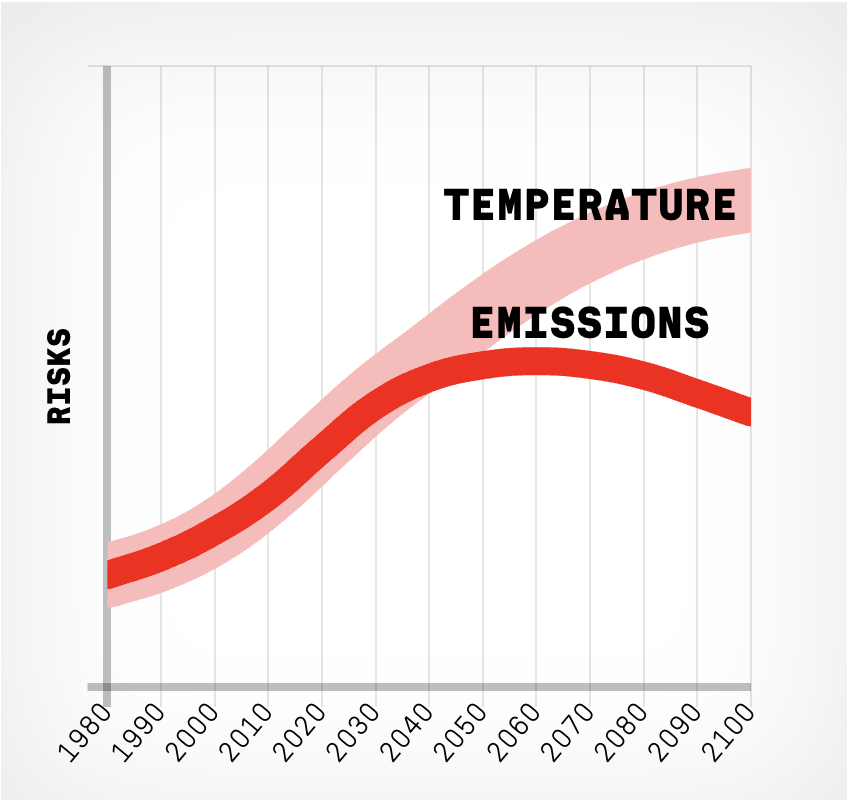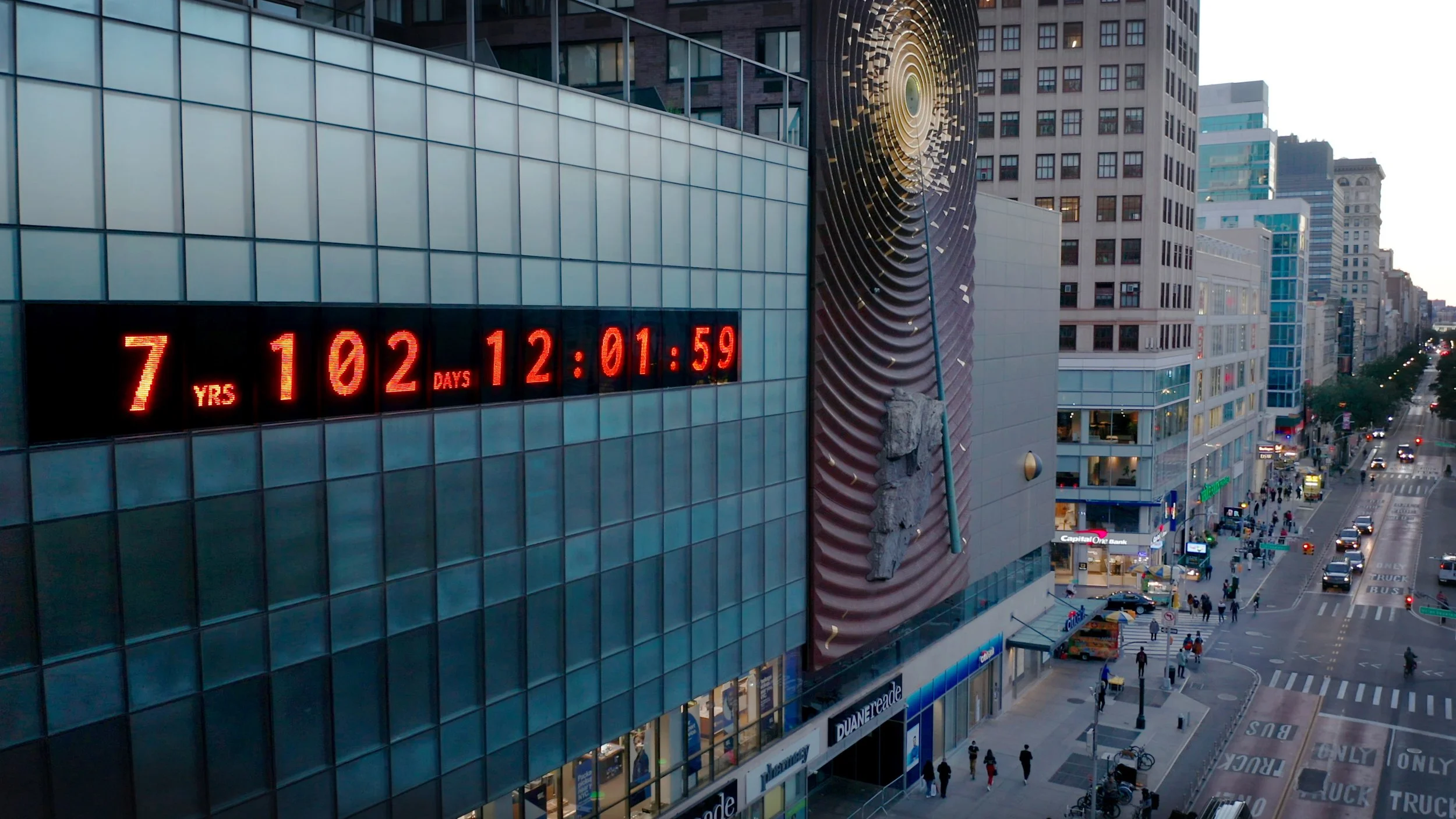A GLOBAL DEADLINE
The science is clear: we are in a Climate Emergency.
We must #ActInTime.
Tap for details
The Science Is Clear
It will never be too late to take meaningful action to protect people and the planet. However, decades of increasing carbon emissions from oil, gas and coal are harming the natural and social systems upon which all humanity depends, threatening devastation. Time is of the absolute essence.
Backed by the best science, the Climate Clock tells us what we must do, by when.
The good news: there is still time to avoid the worst climate impacts, but we must act at both the speed and scope required. Check out our interactive tool to understand more.
THE MOST IMPORTANT NUMBER IN THE WORLD
The numbers on the clock can be shocking. Where do they come from?
Answer: The best available science.
In 2018, the Intergovernmental Panel on Climate Change (IPCC) published a Special Report - the largest attempt to date by climate scientists tomeasure the world’s remaining carbon budget to keep global warming below 1.5ºC. In summer 2021, the IPCC published a report on the physical science behind climate change, which included updated carbon budget estimates for limiting global warming to 1.5ºC. In this report, IPCC researchers estimated that, beginning in 2020, humans could release an additional 400 Gt of carbon into the atmosphere and still have a 67% chance of limiting warming to 1.5ºC (see here, table SMP.2).
The Climate Clock deadline shows how long we have left until this carbon budget runs out, given the amount of carbon we continue to emit globally. The clock will continue to run down until it hits zero, at which time our carbon budget would be depleted and the likelihood of even more devastating global climate impacts would be very high.
We must take action to reduce global greenhouse gas emissions toward zero as quickly as possible within this critical time window for action.
Data for the deadline is sourced from the Mercator Research Institute on Global Commons and Climate Change. The MCC’s carbon clock assumes an average annual rate of 42.2 Gt of carbon emissions to calculate the time remaining on the clock. However, if rates of global emissions continue to rise, our carbon budget – and the time on the clock – will run out even faster. If we cut the rate of global carbon emissions, time on the clock would hypothetically begin to increase.




